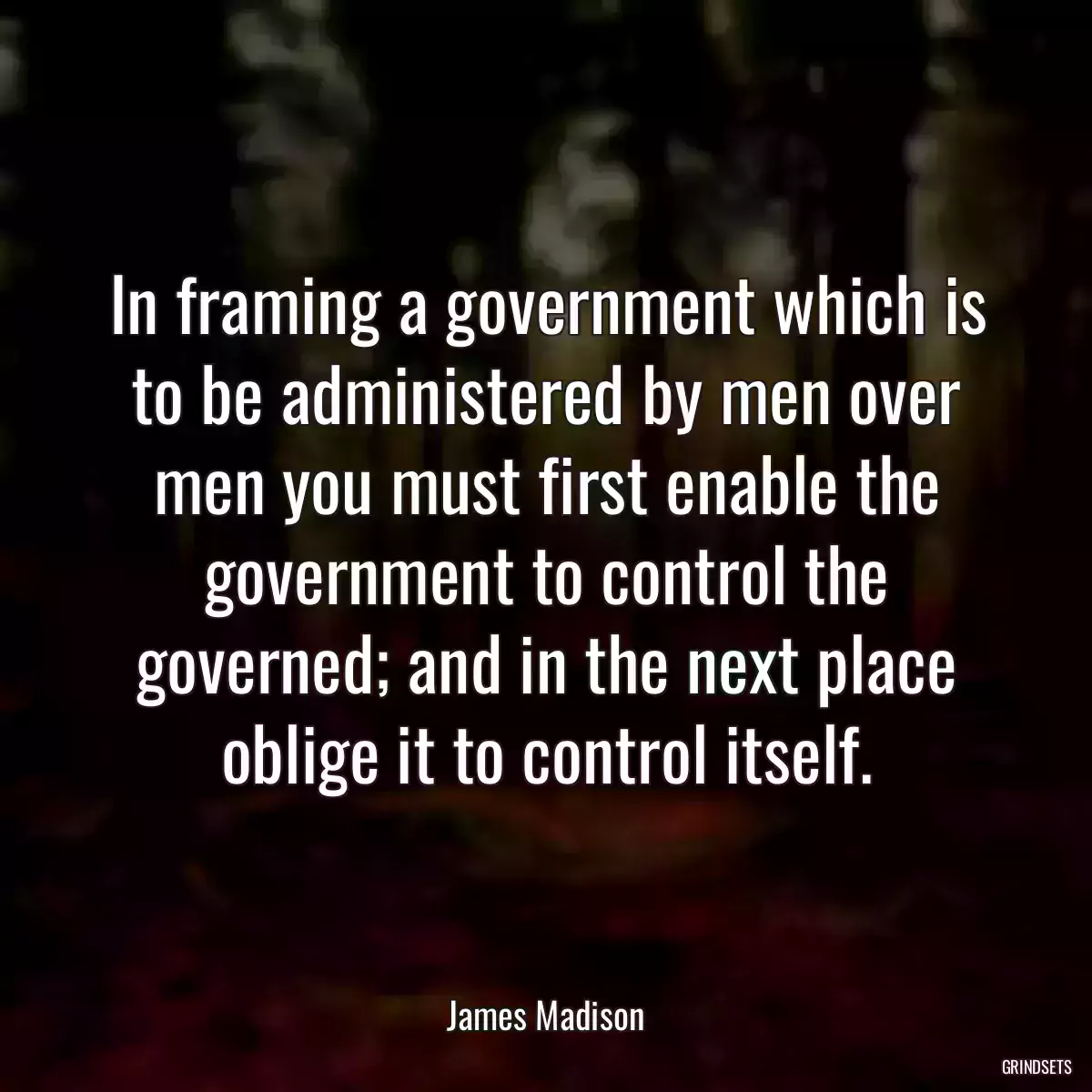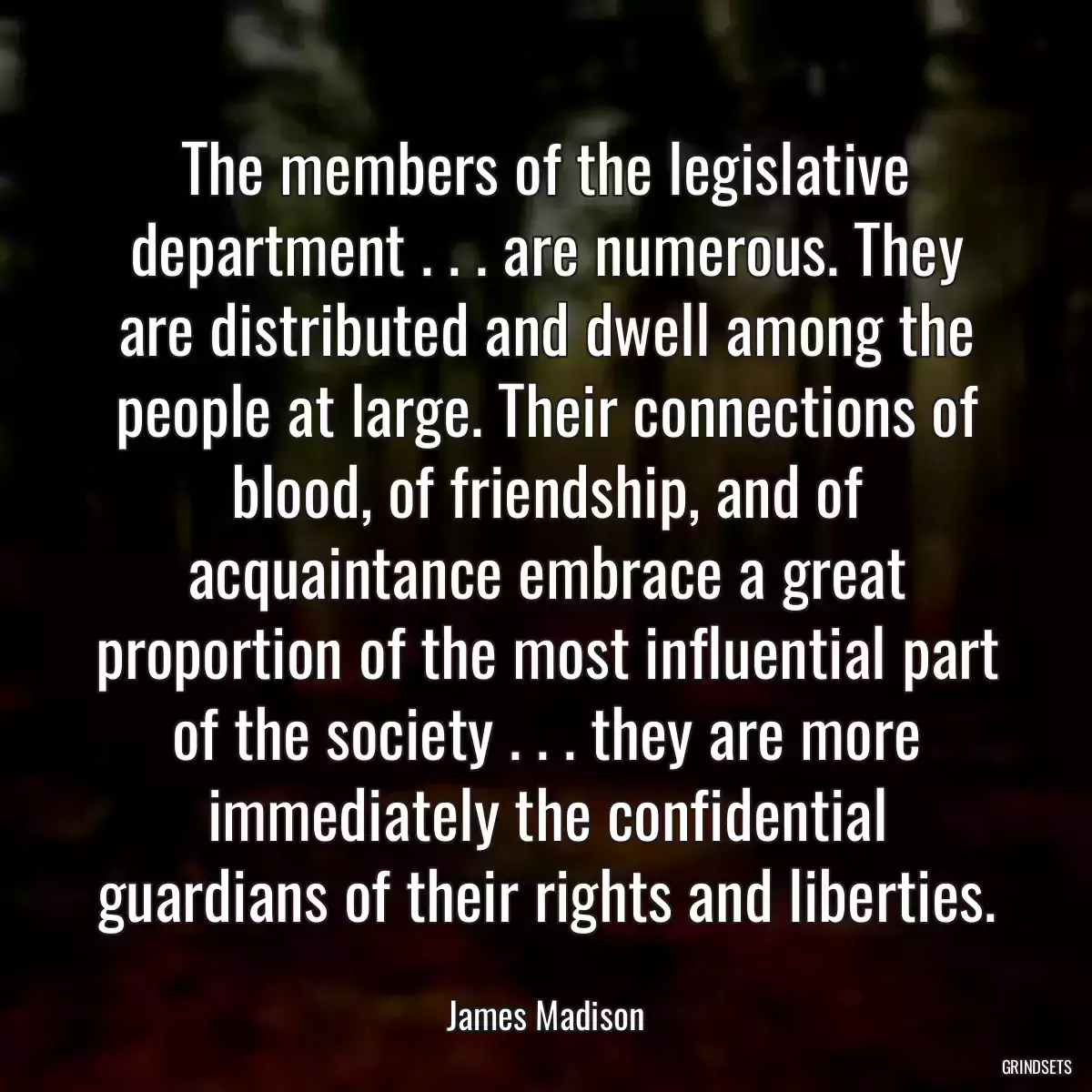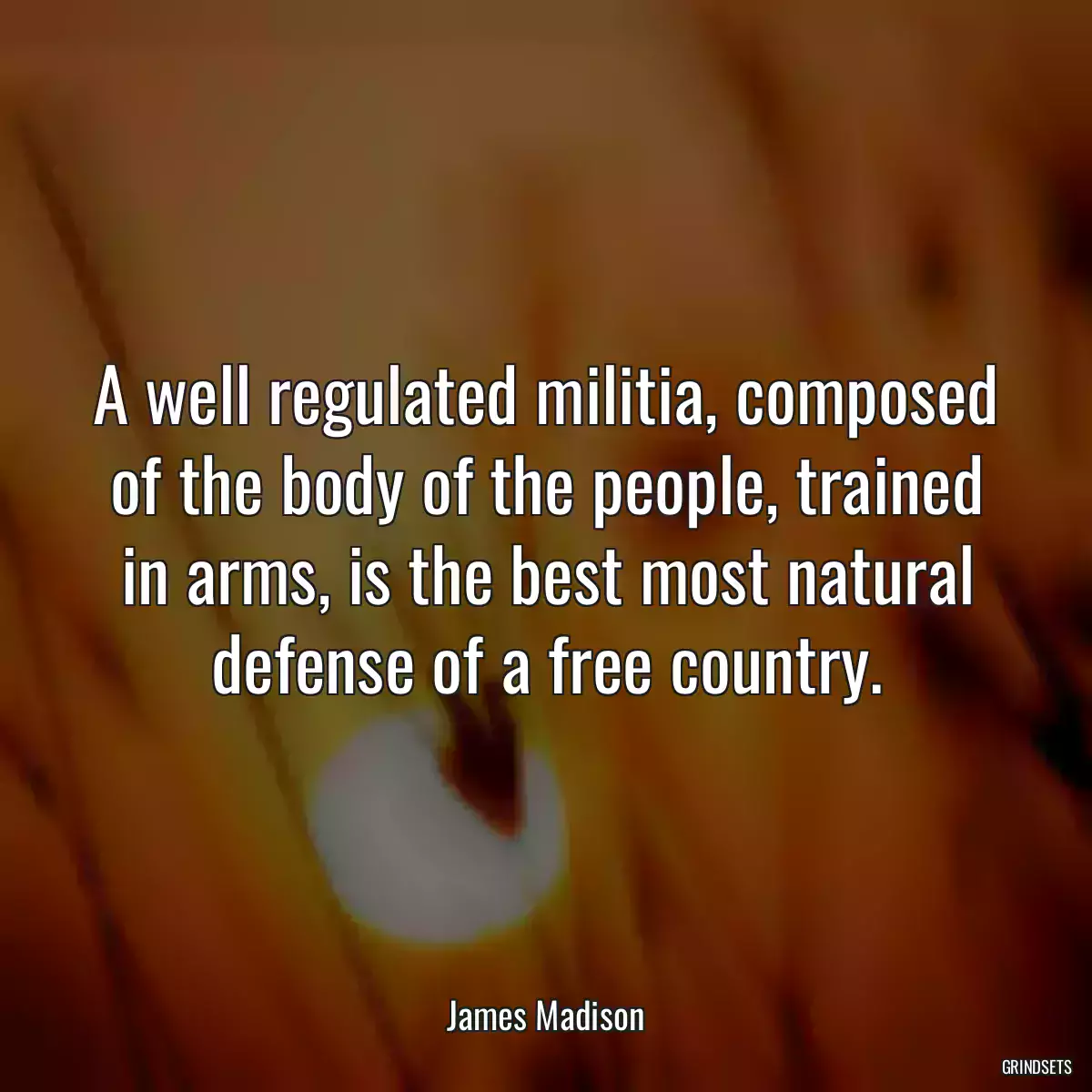
Quotes James Madison - page 3
Find dozens of James Madison with images to copy and share.

In framing a system, which we wish to last for ages, we should not lose sight of the changes which ages will produce.
Attempts to enforce by legal sanctions, acts obnoxious to so great a proportion of Citizens, tend to enervate the laws in general, and to slacken the bands of Society. If it be difficult to execute any law which is not generally deemed necessary or salutary, what must be the case, where it is deemed invalid and dangerous? And what may be the effect of so striking an example of impotency in the Government, on its general authority?
If men were angels, no government would be necessary. If angels were to govern men, neither external nor internal controls on government would be necessary. In framing a government which is to be administered by men over men, the great difficulty lies in this: you must first enable the government to control the governed; and in the next place oblige it to control itself. A dependence on the people is, no doubt, the primary control on the government; but experience has taught mankind the necessity of auxiliary precautions.
You may also like
As compacts, charters of government are superior in obligation to all others, because they give effect to all others. As truths, none can be more sacred, because they are bound, on the conscience by the religious sanctions of an oath. As metes and bounds of government, they transcend all other land-marks, because every public usurpation is an encroachment on the private right, not of one, but of all.
[T]he bill exceeds the rightful authority to which governments are limited by the essential distinction between civil and religious functions, and violates in particular the article of the Constitution of the United States which declares that Congress shall make no law respecting a religious establishment.... This particular church, therefore, would so far be a religious establishment by law, a legal force and sanction being given to certain articles in its constitution and administration.
Whilst the last members were signing it Doctr. Franklin looking towards the Presidents chair, at the back of which a rising sun happened to be painted, observed to a few members near him, that Painters had found it difficult to distinguish in their art a rising from a setting sun.
In war, too, the discretionary power of the Executive is extended; its influence in dealing out offices, honors, and emoluments is multiplied; and all the meaning of seducing the minds, are added to those of subduing the force, of the people. The same malignant aspect in republicanism may be traced in the inequality of fortunes, and the opportunities of fraud, growing out of a state of war, and in the degeneracy of manners and morals, engendered by both. No nation could preserve its freedom in the midst of continual warfare.
I acknowledge, in the ordinary course of government, that the exposition of the laws and Constitution devolves upon the judicial. But I beg to know upon what principle it can be contended that any one department draws from the Constitution greater powers than another in marking out the limits of the powers of the several departments.

The members of the legislative department . . . are numerous. They are distributed and dwell among the people at large. Their connections of blood, of friendship, and of acquaintance embrace a great proportion of the most influential part of the society . . . they are more immediately the confidential guardians of their rights and liberties.
If justice, good faith, honor, gratitude and all the other qualities which enoble the character of a nation, and fulfill the ends of Government be the fruits of our establishments, the cause of liberty will acquire a dignity and lustre, which it has never yet enjoyed, and an example will be set, which can not but have the most favorable influence on the rights of Mankind.
The political truths declared in that solemn manner acquire by degrees the character of fundamental maxims of free Government, and as they become incorporated with national sentiment, counteract the impulses of interest and passion.
The personal right to acquire property, which is a natural right, gives to property, when acquired, a right to protection, as a social right.
Since it is impossible for the people spontaneously and universally, to move in concert towards their object; and it is therefore essential, that such changes be instituted by some informal and unauthorized propositions, made by some patriotic and respectable citizen or number of citizens.
What a perversion of the normal order of things! ... to make power the primary and central object of the social system, and Liberty but its satellite.
If the public homage of a people can ever be worthy of the favorable regard of the Holy and Omniscient Being to Whom it is addressed, it must be that in which those who join in it are guided only be their free choice-by the impulse of their hearts and the dictates of their consciences.
That is not a just government where arbitrary restrictions, exemptions, and monopolies deny to part of its citizens that free use of their faculties, and free choice of their occupations.
In the latter sense, a man has a property in his opinions and the free communication of them. He has a property of peculiar value in his religious opinions, and in the profession and practice dictated by them. He has an equal property in the free use of his faculties and free choice of the objects on which to employ them. In a word, as a man is said to have a right to his property, he may be equally said to have a property in his rights.
You may also like

No free country has ever been without Parties, which are a natural offspring of freedom.